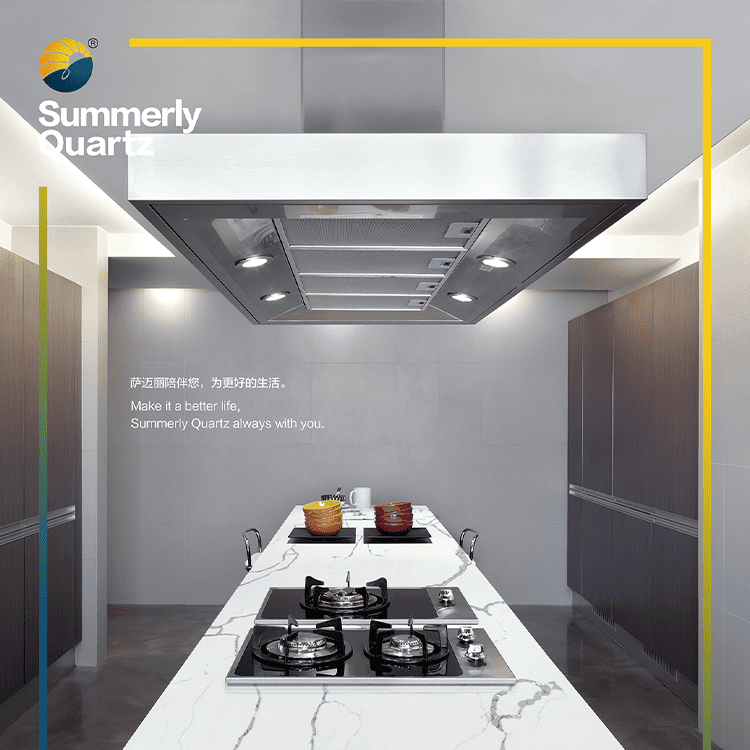
Quartz stone has become a popular choice for countertops, flooring, and other surfaces in homes and commercial spaces due to its durability, versatility, and aesthetic appeal. While quartz is known for its low-maintenance qualities, proper care and maintenance are essential to preserve its beauty and longevity over time. In this article, we explore the key maintenance requirements for quartz stone surfaces, offering practical tips to keep them looking pristine for years to come.
Regular cleaning is the cornerstone of quartz stone maintenance. To keep quartz surfaces free of dirt, grime, and spills, it is recommended to use mild dish soap or pH-balanced cleaner diluted in warm water. Avoid harsh abrasive cleaners and scouring pads, as they can dull the surface and cause scratches. Simply wipe down the surface with a soft cloth or sponge and rinse thoroughly with clean water.
While quartz is resistant to stains from common household liquids such as wine, coffee, and vinegar, it is still important to promptly clean up spills to prevent staining. For stubborn stains or dried-on residue, a non-abrasive cleaner and a soft-bristled brush can be used to gently scrub the affected area. Avoid using bleach or abrasive cleaners, as they can damage the surface and compromise its integrity.
Quartz is highly resistant to heat, but prolonged exposure to high temperatures can cause thermal shock and potentially damage the surface. To prevent heat damage, always use trivets or hot pads when placing hot cookware or appliances on quartz countertops. Similarly, avoid cutting directly on quartz surfaces with sharp knives or utensils, as this can leave scratches and dull the finish.
Unlike natural stone surfaces, quartz does not require sealing to maintain its durability and stain resistance. However, some quartz manufacturers may recommend applying a sealant for added protection, particularly in high-traffic areas or environments prone to spills and moisture. Follow the manufacturer's guidelines regarding sealant application, and reapply as needed according to the recommended schedule.
To prevent scratches, chips, and other damage to quartz surfaces, it is important to use caution when handling heavy objects and abrasive materials. Avoid dragging or dropping heavy items directly onto quartz countertops, and use felt pads or coasters to protect the surface from abrasive objects. Additionally, avoid exposing quartz surfaces to harsh chemicals and solvents, as these can cause discoloration and damage to the resin binders.
In addition to regular cleaning and stain removal, routine maintenance tasks such as wiping down the surface with a damp cloth and mild detergent, and drying it thoroughly with a clean towel, can help prevent the buildup of dirt and grime. Periodically inspect quartz surfaces for signs of damage or wear, and address any issues promptly to prevent further deterioration.
Quartz stone surfaces are a beautiful and durable choice for homes and commercial spaces, but proper maintenance is essential to keep them looking their best. By following these maintenance requirements, including regular cleaning, stain removal, avoiding heat and sharp objects, and routine maintenance, you can ensure that your quartz countertops and surfaces remain pristine for years to come. With a little care and attention, your quartz stone surfaces will continue to enhance the beauty and functionality of your space.